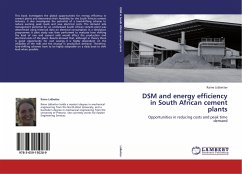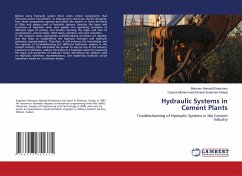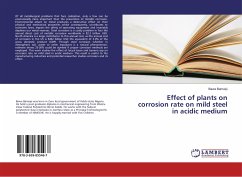This book investigates the global opportunities for energy efficiency in cement plants and determines their feasibility for the South African cement industry. It also investigates the potential of a load-shifting scheme to reduce evening peak loads and save electrical costs. The demand side management potential for an undisclosed South African cement plant was determined using historical data on electrical consumption in a simulation programme. A pilot study was then performed to evaluate how shifting the load of raw and cement mills would affect the production and electrical costs of the plant. Results showed that, although in theory there is good opportunity for cost savings, it is highly dependent on the reliability of the mills and the change in production demand. Therefore, load-shifting schemes have to be highly adaptable on a daily basis to shift load when possible.
Bitte wählen Sie Ihr Anliegen aus.
Rechnungen
Retourenschein anfordern
Bestellstatus
Storno








